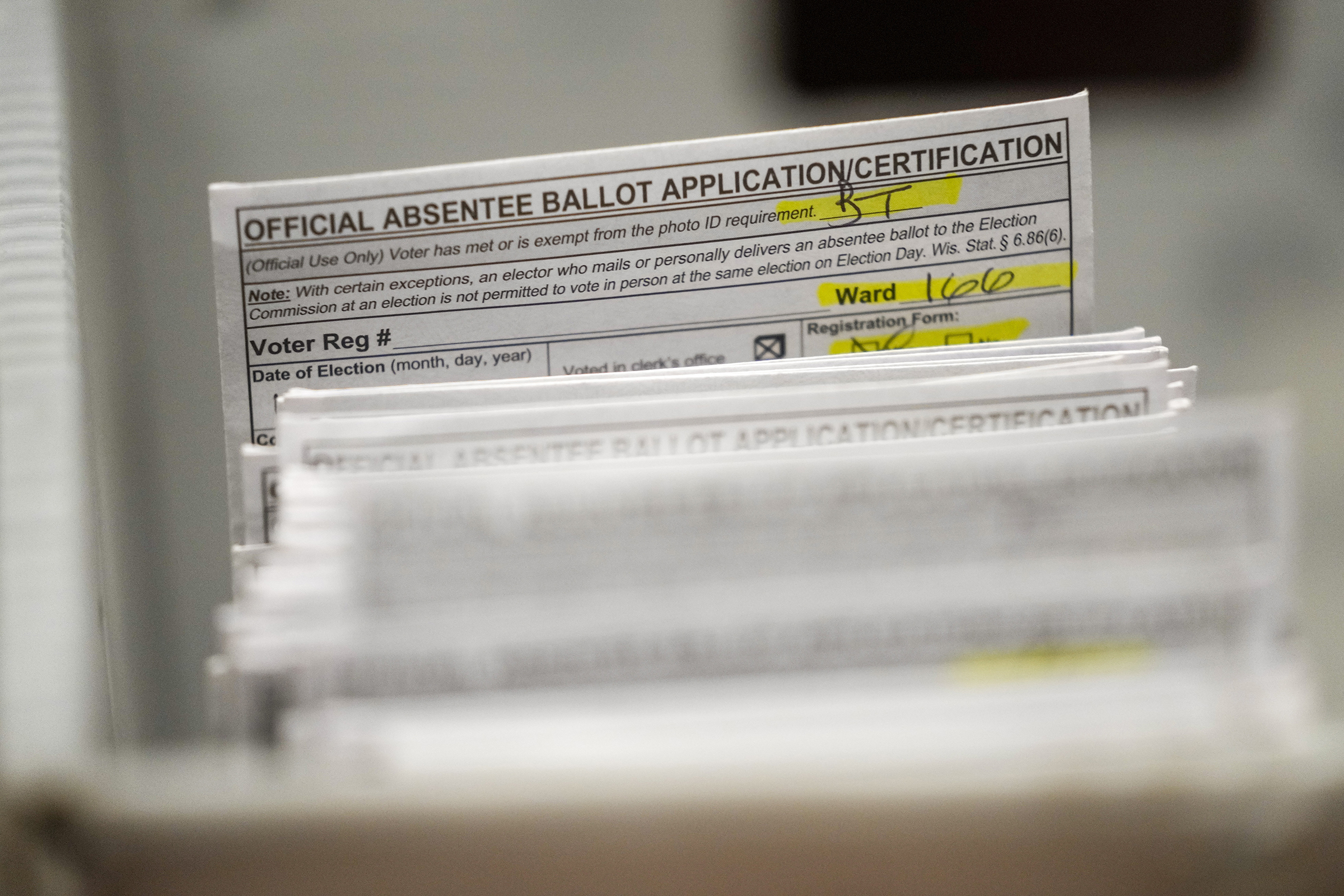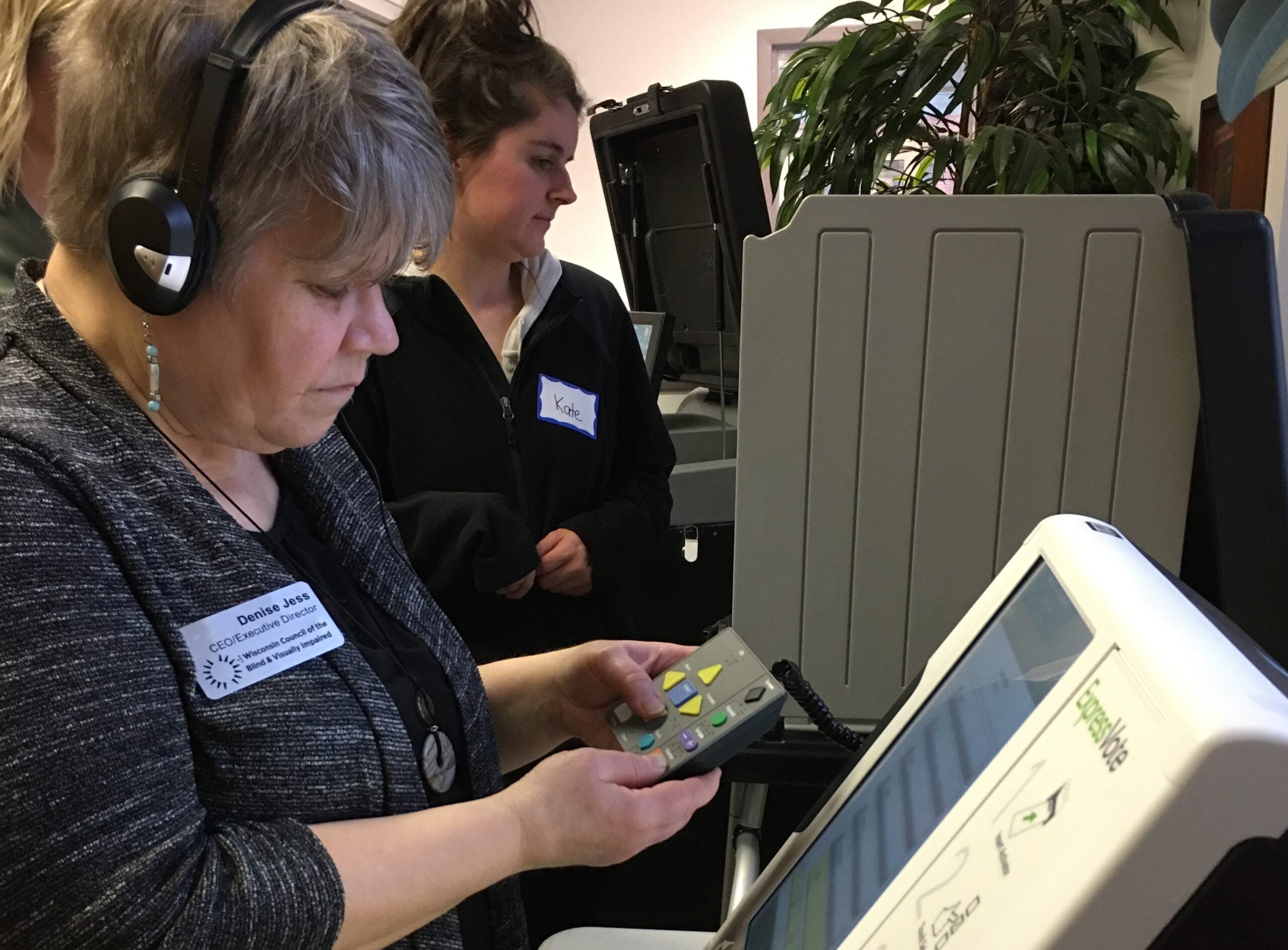Voters in a small northern Wisconsin town will head to the polls Tuesday for a court-ordered redo of a spring town board election with “irregularities” a judge said “seriously undermine the appearance of fairness.”
Those irregularities include illegally-cast ballots and a one-vote margin for a candidate who also oversaw the election as town clerk.
The April election between former Presque Isle Town Board Chair John MacLean and former Town Clerk Lorine Walters couldn’t have been closer. When all 483 votes were counted, Walters was initially declared the winner, defeating MacLean 242-241 based on unofficial results.
News with a little more humanity
WPR’s “Wisconsin Today” newsletter keeps you connected to the state you love without feeling overwhelmed. No paywall. No agenda. No corporate filter.
“The election workers were like, aghast that it was one vote,” Walters told Wisconsin Public Radio. “And one of the election workers suggested, ‘Let’s just do a hand recount right now.’”
The result was the same.
Walters, who had served as town clerk for more than 30 years, said aside from making sure polling equipment was set up properly in the morning, she stayed out of the room until it was over.
But MacLean told WPR he became suspicious when campaign mailings he sent on the eve of the election were sent back with stamps indicating some of those properties were vacant.
“How can someone be on a voter roll voting from a property that’s vacant?” said MacLean.
A lawsuit was filed in Vilas County Circuit Court. MacLean alleged the results were erroneous. Ballots were sent to the court for review. Months of hearings were held.
In the end, Circuit Court Judge Martha Milanowski ruled two ballots had been illegally cast. One came from a woman who had voted in Illinois prior to the town election and had not re-registered to vote in Wisconsin. The other came from a man who received an absentee ballot in the mail from Walters before her office received his written application to vote absentee.
There were “procedural errors” with three additional absentee ballots missing witness addresses, the judge ruled. One of them involved Walters, who had acted as a witness for someone who voted absentee in the clerk’s office.
“Should I have caught that later? Yes,” Walters said. “But somehow that and the two other ballots got filed away in the locked cabinet and nobody looked at them again until election day, obviously.”
The way Judge Milanowski described the situation in her ruling, she was left with few options. Milanowski said she didn’t want to compel those who voted illegally to say who they chose in the town board race.
Instead, the judge took the nearly unprecedented step of setting aside the town board spring election results and ordered a redo on Nov. 14.
“While it’s entirely possible that the outcome of this election might not be changed if it is set aside and a new election is ordered, the irregularities and the stakes associated with this election and recount do seriously undermine the appearance of fairness,” Milanowski said. “This was a tight election. As close as an election can be. And an election that we now know contained procedural errors that if the mandatory process had been followed as required by law, at least two and up to five votes would not have been counted.”
Milanowski noted, however, she wasn’t implying there was any blatant disregard for election rules by election workers, “but there was an unfortunate lack of knowledge and understanding as to their role and responsibilities in the recount.”
‘No matter how it goes, I’m hoping it’s more than one vote’
Both MacLean and Walters said they’re happy with the ruling, namely because voters aren’t being forced to say who they cast ballots for in their first election.
“I’m all about the will of the people, and so if I’m not supposed to be the town chair, I’m not supposed to be the town chair,” MacLean said. “But it’s got to be fair.”
MacLean said he’s more confident about the results of the election redo, because Walters is no longer the clerk, and he expects election workers will be more careful about following absentee ballot procedures.
Walters said she wants the election to be done so the town can “start healing.” She said it’s easy for someone who hasn’t been involved in overseeing elections to criticize how they’re run.
“This is just a microcosm of what’s happening across the country,” Walters said. “I think people are suspicious of, you know, (the 2020 election), and they’re still suspicious.”
Walters said the town board has been down to two members for much of the year as the election result was challenged in court. She said it’s “paralyzing the government” and is looking forward to the whole thing being over.
“You know, no matter how it goes,” Walters said, “I’m hoping it’s more than one vote.”
A court-ordered redo is rare
While a court ordering a new election to be held is unprecedented for the Town of Presque Isle, similar legal challenges have been filed in other parts of Wisconsin.
Milanowski’s order cited two prior cases as precedent for her decision. In 2000, an Oconto County board race was decided by just two votes. One of the candidates petitioned for a recount and alleged up to four people voted illegally. One vote was set aside, but ultimately, a circuit court and state appeals court confirmed the initial victory.
The other case cited by Milanowski did result in a new election being ordered, but the circumstances were far different.
Amid a political battle over moving the county seat from the Village of Grantsburg to the Town of Siren, the county clerk refused to prepare and distribute referendum ballots on the issue in 1976. As a result, around 40 percent of voters weren’t able to vote. A lawsuit eventually made it to the Wisconsin Supreme Court, which, in 1981, ultimately ordered a new election to be held.
Wisconsin Public Radio, © Copyright 2026, Board of Regents of the University of Wisconsin System and Wisconsin Educational Communications Board.




